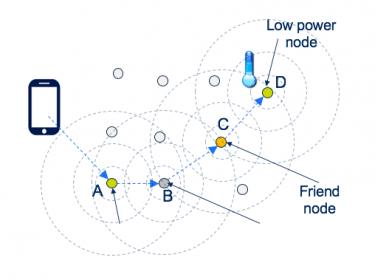Keysight, with deep roots tracing back to Hewlett-Packard, has long been at the forefront of innovation in electronic design and testing. It manufactures electronics test and measurement equipment and software. The company also owns its own foundry and makes custom chips and packages for its instrumentation business. Many… Read More
Tag: interoperability
How AI is Redefining Data Center Infrastructure: Key Innovations for the Future
Artificial intelligence (AI) is driving a transformation in data center infrastructure, necessitating cutting-edge technologies to meet the growing demands of AI workloads. As AI systems scale up and out, next-gen compute servers, switches, optical-electrical links, and flexible, redundant networking solutions are … Read More
The Impact of UCIe on Chiplet Design: Lowering Barriers and Driving Innovation
The semiconductor industry is experiencing a significant transformation with the advent of chiplet design, a modular approach that breaks down complex chips into smaller, functional blocks called chiplets. A chiplet-based design approach offers numerous advantages, such as improved performance, reduced development … Read More
Synopsys Design IP for Modern SoCs and Multi-Die Systems
Semiconductor intellectual property (IP) plays a critical role in modern system-on-chip (SoC) designs. That’s not surprising given that modern SoCs are highly complex designs that leverage already proven building blocks such as processors, interfaces, foundational IP, on-chip bus fabrics, security IP, and others. This… Read More
Unleashing the 1.6T Ecosystem: Alphawave Semi’s 200G Interconnect Technologies for Powering AI Data Infrastructure
In the rapidly evolving landscape of artificial intelligence (AI) and data-intensive applications, the demand for high-performance interconnect technologies has never been more critical. Even the 100G Interconnect is already not fast enough for infrastructure applications. AI applications, with their massive datasets… Read More
Synopsys 224G SerDes IP’s Extensive Ecosystem Interoperability
Hyperscale data centers are evolving rapidly to meet the demands of high-bandwidth, low-latency applications, ranging from AI and high-performance computing (HPC) to telecommunications and 4K video streaming. The increasing need for faster data transfer rates has prompted a scaling of Ethernet from 51Tb/s to 100Tb/s. Numerous… Read More
Successful Inter-Op Verification of Enterprise Flash Controller with ONFI 5.1 PHY IP
In an era defined by digital transformation and data-intensive applications, the solid-state device (SSD) market has emerged as a critical player in reshaping storage solutions. While there are several types of non-volatile memories, each with its own unique characteristics and use cases, Flash memory is increasingly overtaking… Read More
Coherent Optics: Synergistic for Telecom, DCI and Inter-Satellite Networks
The telecommunications industry has experienced significant growth in recent years, driven by the increasing demand for high-speed internet and data services. This growth has created a surge in traffic on optical networks, leading to the development of new telecom network architectures that can support the increasing demand… Read More
Mesh Networks, Redux
It isn’t hard to understand the advantage of mesh networking (in wireless networks). Unlike star/tree configurations in which end-points connect to a nearby hub (such as phones connecting to a conventional wireless access point), in a mesh nodes can connect to nearest neighbors, which can connect to their nearest neighbors… Read More
Eclipsing IDEs
In a discussion with Hilde Goosens at Sigasi, she reminded me of an important topic, relevant to the Sigasi platform. Some aspects of technology benefit from competition, others less obviously so and some absolutely require standardization. Imagine how chaotic mobile communication would be if wireless protocols weren’t standardized.… Read More











